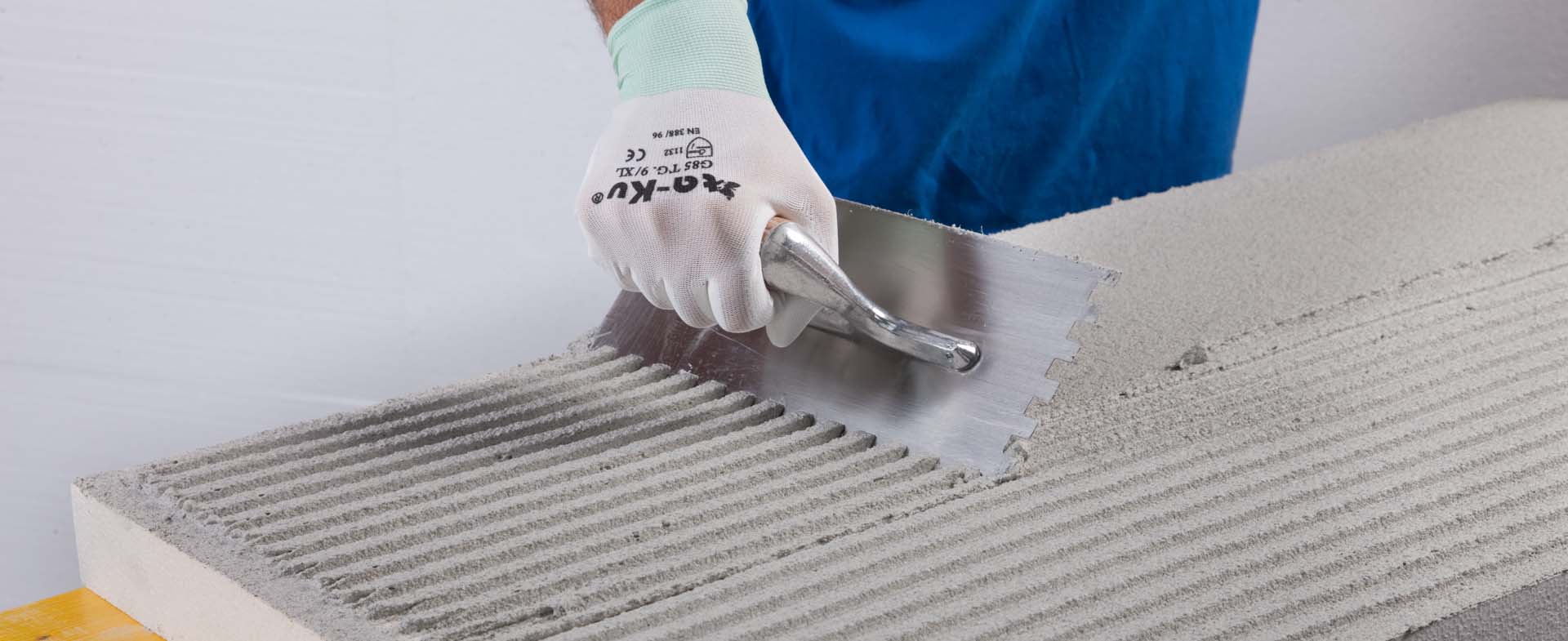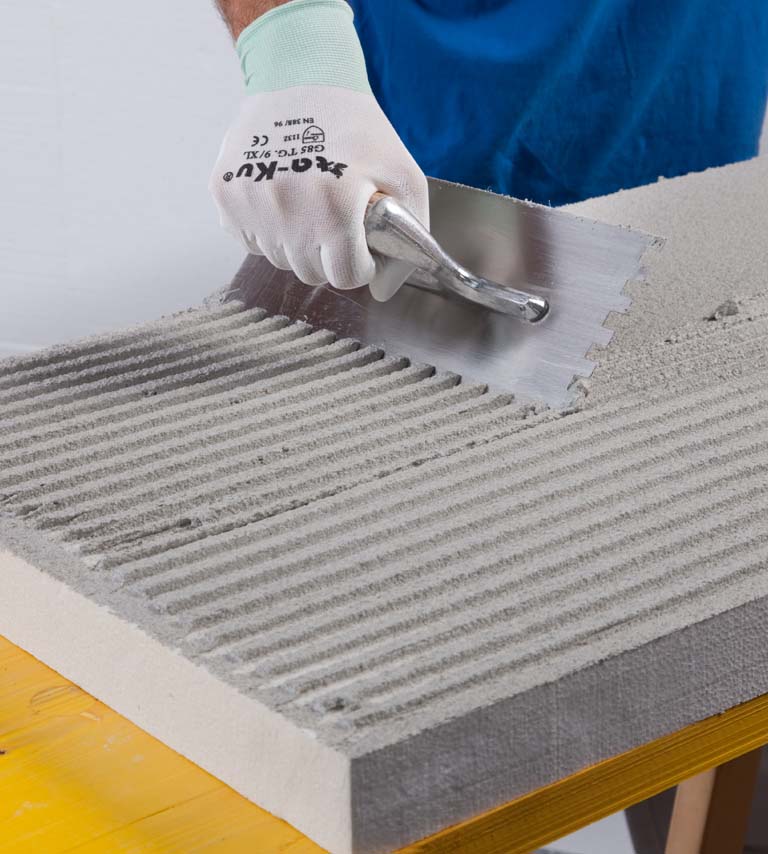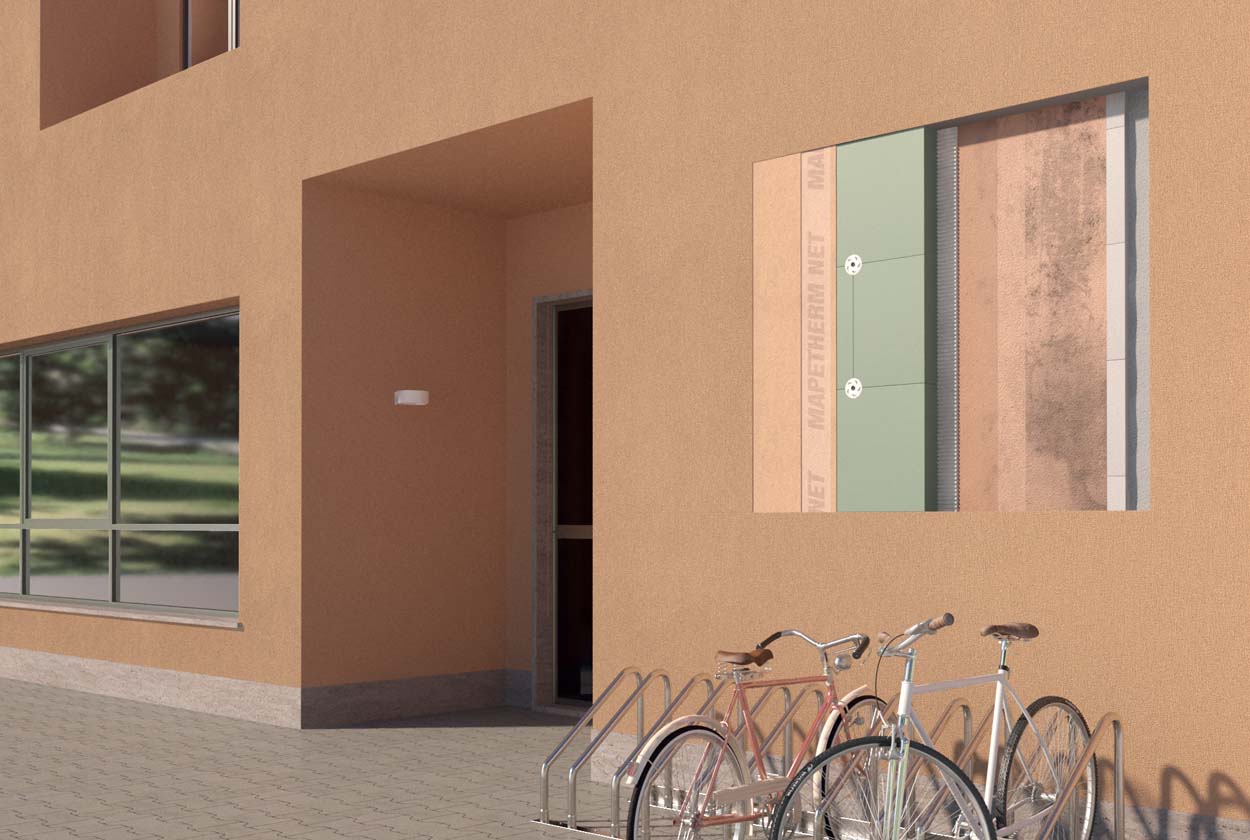

The expert's opinion
/
7/25/2023
External thermal insulation: a driver for sustainability
Mapei promotes external thermal insulation systems as a fundamental vehicle to achieve energy objectives set by the EU
In the coming years in Italy, the insulation system will be the driving force behind the building sector in order to achieve the objectives that the EU has set itself in terms of energy efficiency
Member states of the European Union have defined climate agreements and objectives aimed at the development of a more competitive, safer and more sustainable energy management system. The targets to be hit, laid down in the “Fit for 55” package, are decidedly ambitious (see the graph in the facing page). Every member state of the EU will be able to deliberate and pass legislation autonomously in order to achieve these results, but it will be a legal obligation from which they cannot withdraw. Energy efficiency is, without question, in first place in the list of European Union policies. In Italy, for instance, only 22% of buildings currently meet these requirements while, in Spain, only 1% out of a 25-27 million buildings are estimated to own an A- or B-class energy certification: interventions to improve energy efficiency, therefore, will concern a substantial number of buildings throughout of Europe. External thermal insulation systems will remain the technology driving the building industry.
The culture of external thermal insulation
Mapei promotes the philosophy of external thermal insulation systems as a fundamental vehicle to achieve the objectives that the European Union has set. Besides supplying innovative systems, the company also organises training courses for technicians and installers according to current standards. Along with the quality of materials, correct installation is, in fact, the cornerstone that guarantees the performance and durability of an external thermal insulation system.
Research and technology at the service of sustainability
Mapei’s attention to sustainability involves many areas and activities:
- guarantee of the durability over time of external thermal insulation systems using ETA-certified systems with CE marking. Only what is durable, or that maintains its properties over time, can be defined as sustainable;
- use of raw materials that are either recycled or have a low impact on the environment;
- development of adhesives/skimming products with low modulus of elasticity with adhesion strength at least four times higher than the minimum required according to standards, and with the ability to form a skim coat that is, at the same time, both plastic and monolithic to contrast stresses from the substrates without cracking;
- development of technologies that enable old external thermal insulation systems to be restored by carrying out a thorough analysis of the existing system by the company’s specialised experts and the use of pluri-performing products such as MAPETHERM FLEX RP;
- development of MAPETHERM X2 SYSTEM, a system capable of doubling the existing thermal insulation systems, eliminating the work and cost of removing and disposing of the old materials. The system is also compact, has a guaranteed service life of 10 years, and uses a modern type of insulating panel made from either recycled raw materials or raw materials certified for the green building sector, thereby reducing the emission of climate-changing substances.
- development of highly water-repellent (class W3 according to EN 1062-3), textured coatings resistant to colour degradation and highly efficient against the proliferation of mould and algae (effectiveness tested according to European standards EN 15457 and 15458). The thin coating applied to an external thermal insulation system, which is generally around just 1.2-1.5 mm thick, must guarantee a series of fundamental performance properties for the duration of the entire system. When drafting technical specifications, an expert should always specify the reference European standards regarding performance characteristics against mould and algae and low water absorbency (W3). The same can be said for installers who want to reduce risk for the business by using quality materials that guarantee the durability of their work;
- development of systems with high, certified mechanical characteristics with the capacity to withstand increasingly frequent hailstorms, or the creation of dedicated portions particularly exposed to impact (skirtings for walls in schools, loggias, etc.);
- certified products with EPDs (Environmental Product Declaration of type III, compliant with ISO 14025).
Mapei Research is also developing external thermal insulation systems that should simplify installation, improve their mechanical performance and double old, existing systems, even those with components in an objective, advanced state of degradation. New captivating, decorative effects with high aesthetic appeal for decorating external surfaces, including external thermal insulation systems, will also be launched on the market in the near future.
Mapei is developing thermal insulation systems that can help simplify installation, improve mechanical performance properties and doubl old, existing systems

The picture shows the layers making up the MAPETHERM X2 SYSTEM
Structural strengthening and thermal efficiency
Mapei research has developed systems that enable structural strengthening work to be carried out – with FRCM (Fiber Reinforced Cementitious Matrix), CRM (Composite Reinforced Mortars) or FRP (Fiber Reinforced Polymers) systems – and to apply anti-collapse systems for walls and ceilings – the EQ system – together with solutions to improve thermal efficiency of buildings.






